Filter by

Augustus to Constantine: The Rise and Triumph of Christianity in the Roman World
This masterful study of the early centuries of Christianity vividly brings to life the religious, political, and cultural developments through which the faith that began as a sect within Judaism became finally the religion of the Roman empire. First published in 1970, Grant's classic is enhanced with a new foreward by Margaret M. Mitchell, which assesses its importance and puts the reader in to…
- Edition
- -
- ISBN/ISSN
- 9780664227722
- Collation
- Softcover; 392 hlm.; 15 x 23 cm
- Series Title
- -
- Call Number
- 270.1
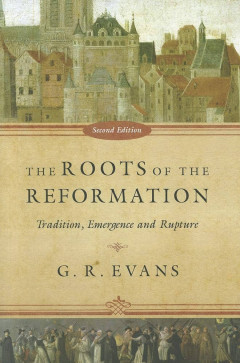
The Roots of the Reformation: Tradition, Emergence, and Rupture
Renowned historian G. R. Evans revisits the question of what happened at the Reformation. Contravening traditional paradigms of interpretation, Evans charts the controversies and challenges that roiled the era of the Reformation and argues that these are really part of a much longer history of discussion and disputation. Evans takes up several issues, such as Scripture, ecclesiology, authority,…
- Edition
- 2
- ISBN/ISSN
- 9780830839964
- Collation
- Softcover; 480 hlm.; 15.24 x 22.61 cm
- Series Title
- -
- Call Number
- 270.6

Luther and Erasmus: Free Will and Salvation
This volume includes the texts of Erasmus's 1524 diatribe against Luther, De Libero Arbitrio, and Luther's violent counterattack, De Servo Arbitrio. E. Gordon Rupp and Philip Watson offer commentary on these texts as well. Long recognized for the quality of its translations, introductions, explanatory notes, and indexes, the Library of Christian Classics provides scholars and students with mode…
- Edition
- -
- ISBN/ISSN
- 9780664241582
- Collation
- Softcover; 348 hlm.; 13.5 x 21.5 cm
- Series Title
- The Library of Christian Classics
- Call Number
- 234.9
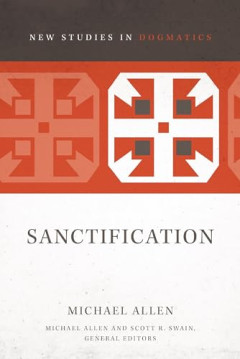
Sanctification
The holy has been defined existentially and sociologically, and churches too often allow their expectations regarding holiness to be prompted by existential aspirations or the social mores of the Christian community. Perhaps it is not surprising that many view holiness as accidental or expendable, even as a legalistic and conformist posture opposed to the freedom of the gospel. But sanctificati…
- Edition
- -
- ISBN/ISSN
- 9780310491460
- Collation
- Softcover; 302 hlm.; 15 x 22.8 cm
- Series Title
- New Studies in Dogmatics
- Call Number
- 234.8
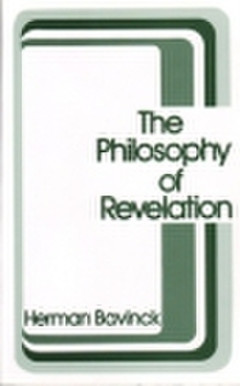
The Philosophy of Revelation
In addition to exegetical, biblical, and systematic theology, "there is room also for a Philosophy of Revelation which will trace the idea of revelation, both in its form and in its content, and correlate it with the rest of our knowledge and life," writes the author, one of the most distinguished Reformed theologians of the twentieth century. "Theological thought has always felt the need of su…
- Edition
- -
- ISBN/ISSN
- -
- Collation
- Softcover; 359 hlm.; 14.4 x 21.5 cm
- Series Title
- -
- Call Number
- 231.7

Calvin and the Reformation: Four Studies by Emile Doumergue, August Lang, Her…
The four studies that make up this book were originally prepared for the Princeton Theological Review in celebration of the 400th anniversary of Calvin's birth. The article by Emile Doumergue deals with Calvin's view of asceticism; Lang's study analyses Calvin's doctrine of natural law; Bavinck's essay discusses Calvin's understanding of common grace; Warfield analyses Calvin's teaching on the …
- Edition
- -
- ISBN/ISSN
- 9781592444786
- Collation
- Softcover; 260 hlm.; 14 x 21.5 cm
- Series Title
- -
- Call Number
- 230.4
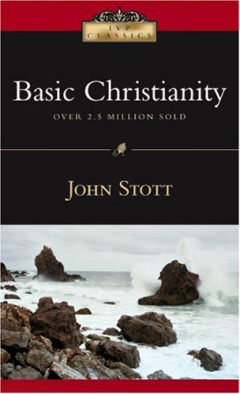
Basic Christianity
John Stott embarks on a compelling course of study that first defends the fundamental claims of Christianity and then defines the proper outworkings of these basic beliefs in the daily lives of believers. Here is a sound, sensible guide for those who are seeking an intellectually satisfying presentation of the Christian faith.
- Edition
- 3
- ISBN/ISSN
- 9780830834037
- Collation
- Softcover; 179 hlm.;
- Series Title
- -
- Call Number
- 230
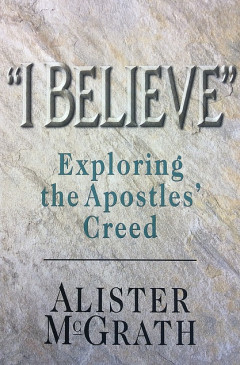
I Believe: Exploring the Apostles' Creed
Alister McGrath unpacks the content of the Apostles' Creed and introduces us to the essential truths about God the Father, the person and work of Jesus Christ, and the Holy Spirit.. An exploration of the Apostle's creed in six weekly sessions for church or home group use.
- Edition
- 2
- ISBN/ISSN
- 9780830819461
- Collation
- Softcover; 120 hlm.; 13.72 x 20.83 cm
- Series Title
- -
- Call Number
- 238.11
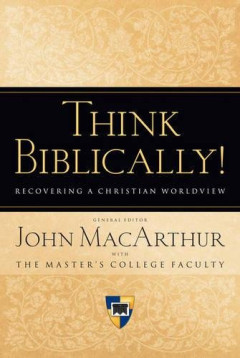
Think Biblically!: Recovering a Christian Worldview
What we think shapes who we are. That's why the Bible tells us, "Do not be conformed to this world, but be transformed by the renewal of your mind" (Romans 12:2a). In a world of differing voices competing for our allegiance, we must learn to "think biblically" so we can distinguish good from evil. God is the Creator of this world; his voice-his Word-must guide our thoughts and our lives. Wit…
- Edition
- 1
- ISBN/ISSN
- 1581344120
- Collation
- Hardcover; 368 hlm.; 15.9 x 24 cm
- Series Title
- -
- Call Number
- 230
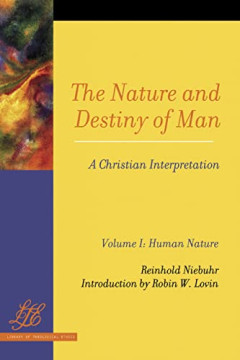
The Nature and Destiny of Man, Vol. 1: Human Nature
The Library of Theological Ethics series focuses on what it means to think theologically and ethically. It presents a selection of important and otherwise unavailable text-English-language texts and translations that have fallen out of print, new translations, and collections of significant statements about problems and themes of special importance - in an easily accessible form. Volumes in thi…
- Edition
- -
- ISBN/ISSN
- 9780664257095
- Collation
- Softcover; 328 hlm.; 15.39 x 23.16 cm
- Series Title
- -
- Call Number
- 233
 Computer Science, Information & General Works
Computer Science, Information & General Works  Philosophy & Psychology
Philosophy & Psychology  Religion
Religion  Social Sciences
Social Sciences  Language
Language  Pure Science
Pure Science  Applied Sciences
Applied Sciences  Art & Recreation
Art & Recreation  Literature
Literature  History & Geography
History & Geography